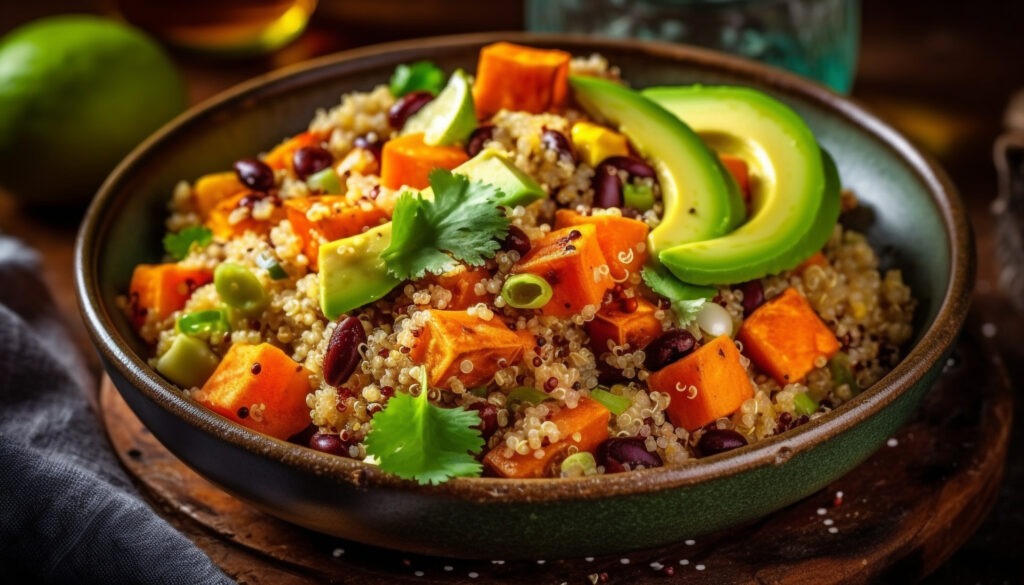Read expert tips for staying healthy this autumn! Boost your immune system, maintain hand hygiene, and enjoy delicious seasonal recipes. Learn more!
When the winter chill kicks in, our immune systems can weaken. Taking extra care of ourselves is crucial to ensuring we remain full of festive cheer!
Here’s what our Doctors and Nutritionist recommend to implement into your routine to remain healthy this holiday season.

Schedule a check-up
Scheduling health maintenance visits in the autumn is crucial for maintaining overall well-being. As the summer transitions into fall, it’s an opportune time to reassess one’s health goals and address any concerns before the year concludes. Regular check-ups with healthcare professionals during this season allow individuals to track their health status, and discuss any lifestyle adjustments needed for the colder months. By addressing health needs proactively in the autumn, individuals can better manage chronic conditions, detect potential issues early, and ensure they enter the winter season with a strong foundation of health and vitality.
Fortify your immune system
Vitamin C and vitamin D play essential roles in fortifying the immune system. Vitamin C is a potent antioxidant that helps protect immune cells from damage, supports the production and function of white blood cells, and aids in the body’s defense against pathogens. It also contributes to the formation of collagen, which is crucial for the skin’s barrier function. On the other hand, vitamin D regulates immune cell function, helps in the development of immune cells, and enhances the body’s response to infections. It is particularly important for maintaining the balance between the immune response and inflammation. Adequate levels of both vitamins are necessary for a robust immune system, and their supplementation, along with a balanced diet and healthy lifestyle, can contribute to better overall immune function.
- Foods high in Vitamin C:
- Citrus fruits
- Bell peppers
- Broccoli
- Brussels sprouts
- Cranberries
- Spinach
- Sweet potatoes
- Apples
- Pomegranates
- Squash
- Foods high in Vitamin D:
- Fatty fish (salmon, mackerel, sardines)
- Fortified dairy products (milk, yogurt, cheese)
- Egg yolks
- Mushrooms (especially if exposed to sunlight)
- Cod liver oil
- Tofu (if fortified)
- Fortified plant-based milk (almond milk, soy milk)
- Fortified cereals
- Pork (lean cuts)
- Beef liver
Incorporating these vitamin-rich foods into your fall diet can help support your immune system and overall health during the season. Remember that while diet plays a significant role in obtaining vitamins, it’s also important to consider exposure to sunlight for vitamin D synthesis and consult with a healthcare provider before making significant dietary changes or taking supplements.

Hand Hygiene
Hand washing remains crucial for health and hygiene during the winter months due to specific factors associated with the season. In colder weather, people tend to spend more time indoors in close proximity to others, increasing the likelihood of germ transmission. Additionally, the dry and cold conditions can lead to dry skin, cracks, and irritations, providing entry points for germs. Regular hand washing helps remove pathogens that cause illnesses like the flu and colds, safeguarding against these common winter ailments. Moreover, with seasonal festivities and gatherings, proper hand hygiene becomes even more vital to prevent the spread of infections among family, friends, and communities. By maintaining consistent hand washing practices, individuals can effectively protect their health and the well-being of those around them during the winter months.

Fresh, healthy salad bowl with quinoa, carrot, and avocado guacamole generated by artificial intelligence
Fall inspired recipe:
Roasted Butternut Squash and Quinoa Salad
This Roasted Butternut Squash and Quinoa Salad is not only packed with seasonal flavors but also offers a great balance of fiber, nutrients, and satisfying ingredients, making it an excellent choice for a wholesome autumn meal in the Pacific Northwest.
- Ingredients:
- 1 medium butternut squash, peeled, seeded, and cubed
- 1 cup quinoa, rinsed
- 2 cups vegetable broth (or water)
- 1 cup Brussels sprouts, trimmed and halved
- 1/2 cup dried cranberries
- 1/2 cup chopped pecans
- 1/4 cup chopped fresh parsley
- 2 tablespoons olive oil
- 1 tablespoon maple syrup
- 1 teaspoon ground cinnamon
- Salt and pepper, to taste
- Instructions:
- Preheat the oven to 400°F (200°C).
- In a bowl, toss the cubed butternut squash with 1 tablespoon of olive oil, maple syrup, ground cinnamon, salt, and pepper. Spread the squash on a baking sheet and roast for about 25-30 minutes or until tender and slightly caramelized.
- While the squash is roasting, rinse the quinoa thoroughly under cold water. In a saucepan, combine the rinsed quinoa and vegetable broth. Bring to a boil, then reduce the heat to low, cover, and simmer for about 15-20 minutes, or until the quinoa is cooked and the liquid is absorbed. Fluff the quinoa with a fork and let it cool slightly.
- In a separate bowl, toss the halved Brussels sprouts with 1 tablespoon of olive oil, salt, and pepper. Spread them on a baking sheet and roast for about 15-20 minutes, or until they’re tender and slightly crispy.
- In a large mixing bowl, combine the cooked quinoa, roasted butternut squash, roasted Brussels sprouts, dried cranberries, chopped pecans, and fresh parsley. Gently toss everything together.
- Adjust the seasoning with more salt, pepper, and a drizzle of olive oil if needed.
Serve the salad warm or at room temperature as a delicious and nutritious autumn meal.



